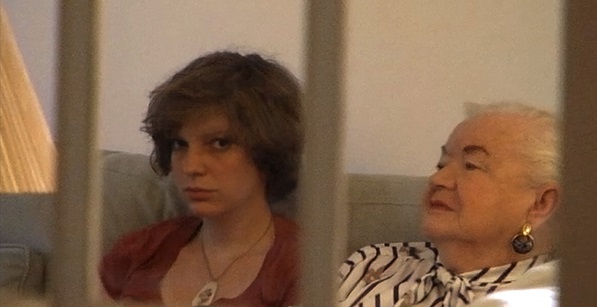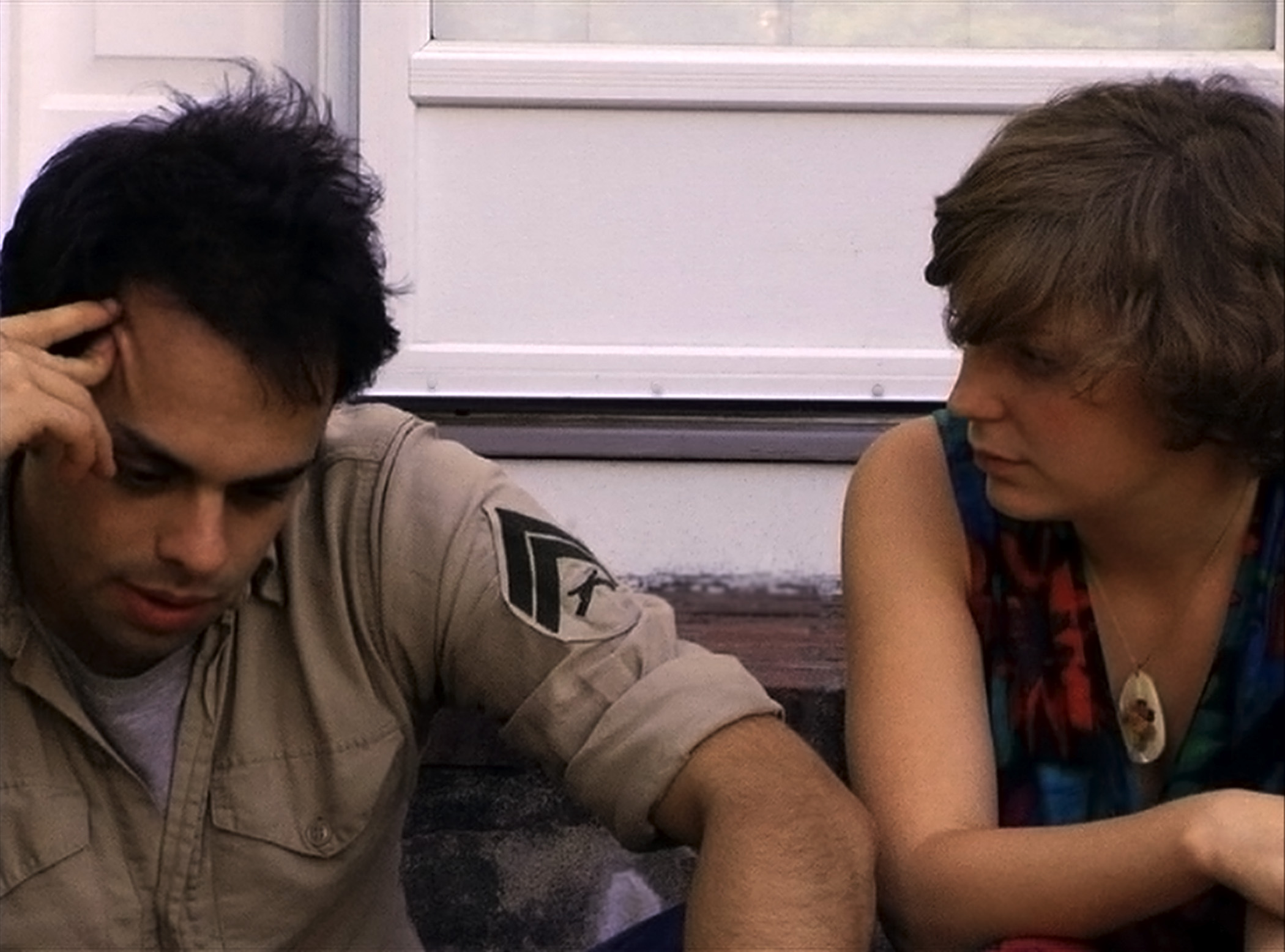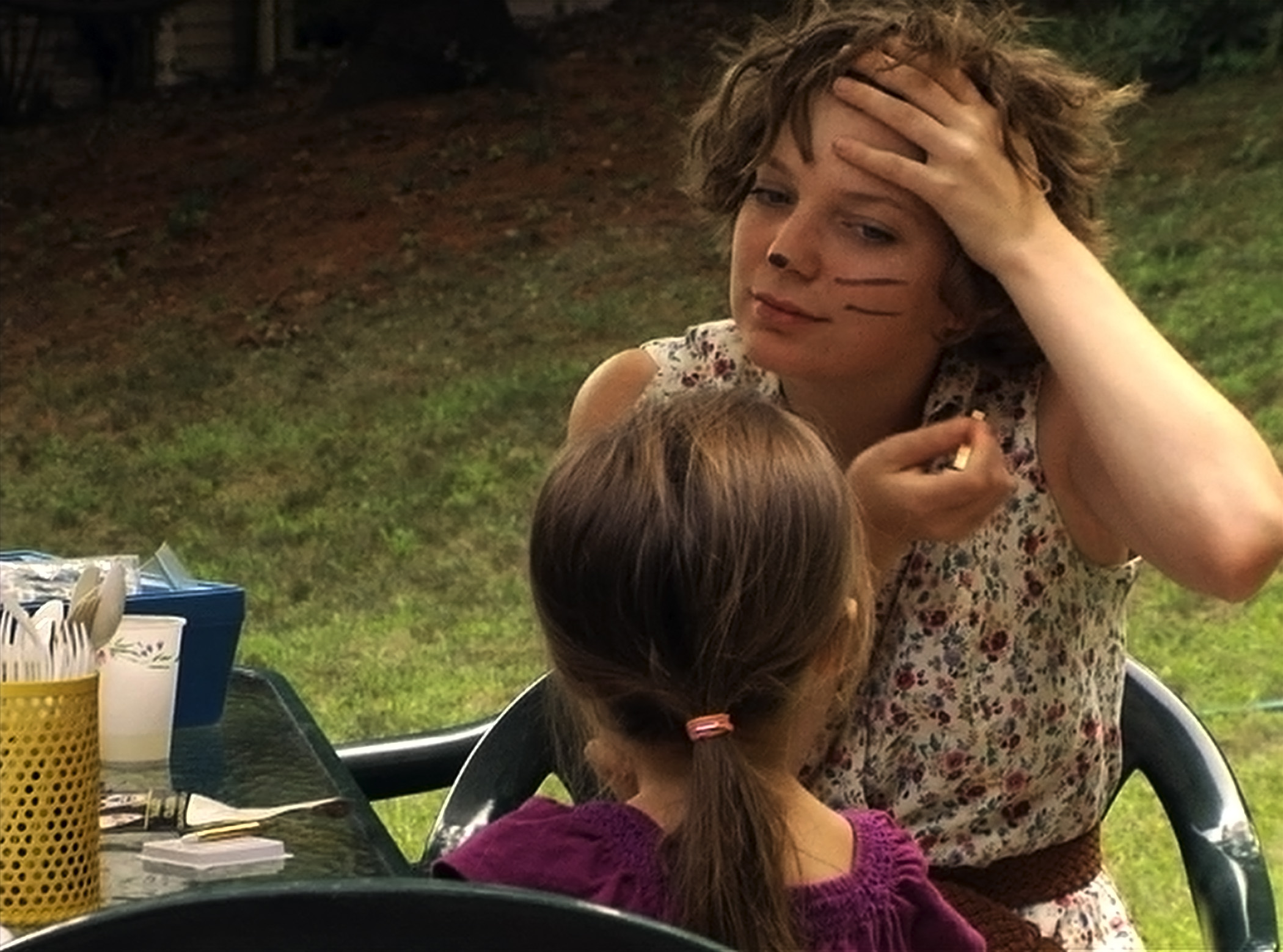It’s a truism of literature that first novels are nearly always autobiographical—it’s as if the writer needs to get the subject of the self out of the way before he can move on to anything else. The cinema is no stranger to this phenomenon either: it seems almost inevitable that the first-time filmmaker, no less inclined toward the irresistible egotism of self-scrutiny, will start with his camera pointed inward, a lifetime of experience squeezed at once between the four lines of the frame. Nathan Silver took a rather different approach—which is to say he went about it backward. His debut feature, The Blind (2009), was a large, impersonal production furnished with a professional cast and crew, beleaguered to the point of disaster and, following a loss of more than a half a million dollars, summarily disowned by its director, who speaks of it now with the weariness of someone long accustomed to regret. And how does a filmmaker recover from such a creative and financial catastrophe? Well, if you’re Nathan Silver, you scale back, reduce the scope of your aspirations, and set about making a proper first film, one which contends at last with that knotty excess of lived experience. In other words, you make a film about yourself.
That film was Exit Elena. Afforded a limited theatrical engagement at the ReRun theater in New York City this past July (where it was banished to such enviable showtimes as Saturday morning at 7 a.m.), the film wasn’t exactly a runaway box office success. But then it was never intended to be. A film of modest means but exceptional candor, Exit Elena feels, in many ways, like a sort of high-style home movie, largely improvised in the house in Massachusetts where Silver grew up and populated by his family and friends. His girlfriend at the time, Kia Davis, was cast as the film’s eponymous lead, a nurse who moves in with the Silvers as a live-in caretaker to their ailing grandmother; Silver’s mother Cindy, alongside Nathan himself, co-star. Unlike its predecessor, which was shot on costly 16mm film stock by veteran director of photography Rain Li, Elena was shot on consumer-grade miniDV and blown up in post to high definition, its slender seventy-minute running time whittled down from over 200 hours of footage. The result plays a bit like cinematic family portraiture—a wisp of a story formed from the mess and sprawl of real life, reality styled and exaggerated, truth fashioned into art.
And yet despite the intensely personal nature of the film, Exit Elena hardly feels like a product of an author’s narcissism—you get the sense that Silver’s interest in himself as dramatic subject has more to do with autocritique than with anything like affection. This is a work of unblinking introspection; it scrutinizes the artist without taking his appeal to us for granted. Silver, in a testament to his maturity, doesn’t even make himself the primary focus: the film mostly relegates him to the periphery, a supporting character in his own story, preferring instead to stick close to Davis as if to see what he might find. This proves a rewarding strategy. Davis, while not a trained actor, carries an air of the sad and beautiful, and I suspect the pall of melancholy that seems to hang over the film is owed in no small part to her. Exit Elena has been described in reviews, not unfairly, as at times awkward and even abrasive. But even at its most tumultuous—when conflicts seem on the verge of eruption, or when familial tensions reach their inevitable fever pitch—the film is grounded by Davis, whose presence never feels less than effortlessly endearing. You can see Silver gravitating to this quality: his 4:3 frame lingers over her face in closeup, soaking in its secrets.
It’s significant, I think, that the film’s best moment is a wordless closeup: we find Elena watching from afar as a boy she hopes to ask out is embraced by his girlfriend. This is one of the few events in the film that seems conspicuously plotted—one of the few obvious intrusions of fiction into the reality of the improvised family drama. So why does the moment feel so real? Perhaps it’s that the film’s emotional texture has been so believably realized elsewhere that nothing sticks out as artificial. What distinguishes Exit Elena, ultimately, is this sense of intimacy—this impression of dropping in on a family in flux, staring them down and scrutinizing their lives. It’s common enough for a first film to be autobiographical. What we get here is something rare: a look at a home movie, a tour through a family album.







